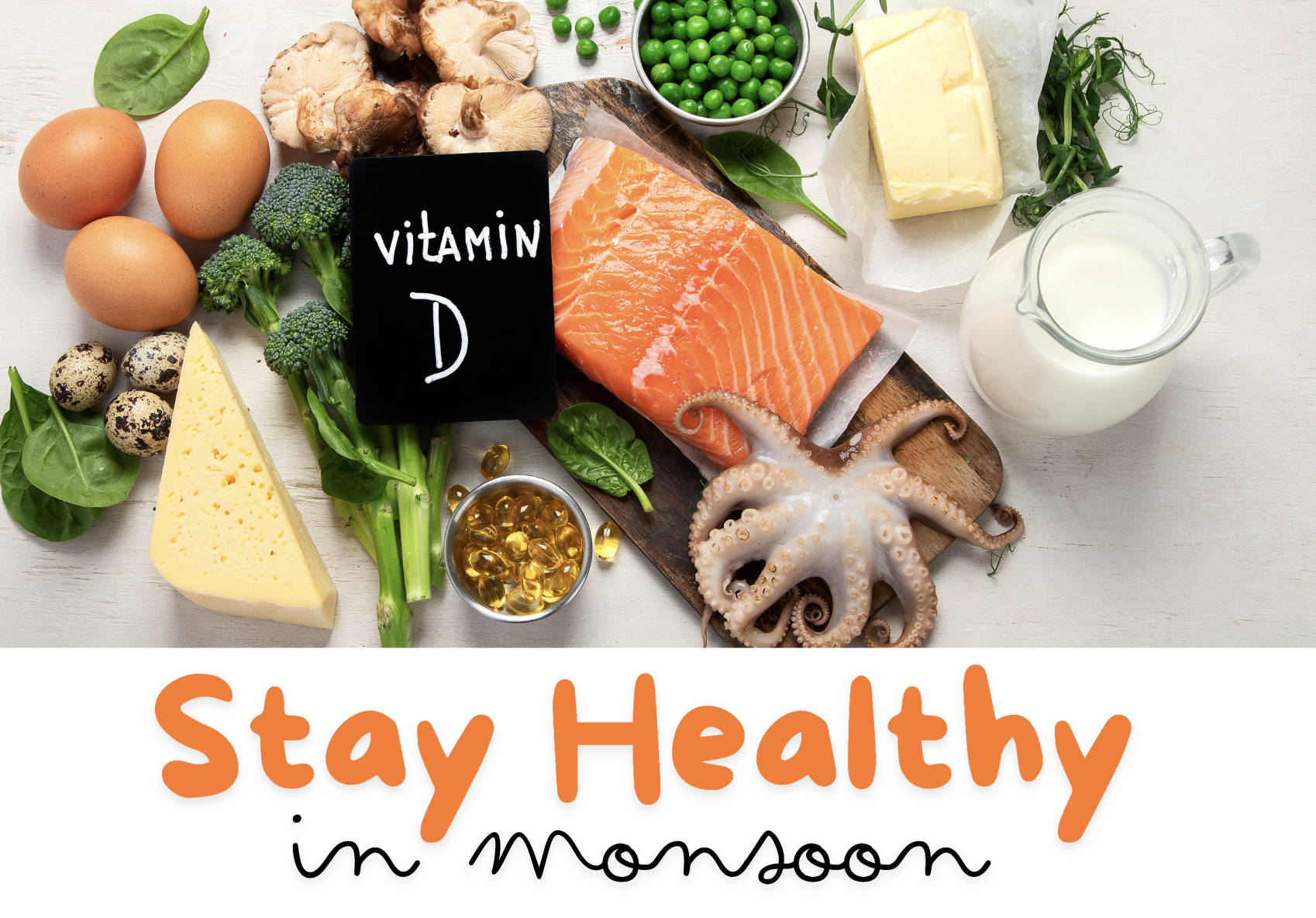Monsoon brings a delightful respite from the summer heat but can also lead to certain health concerns, such as vitamin D deficiency. Lack of sunlight during the rainy season can impact your vitamin D levels, making it essential to include certain foods in your diet to maintain healthy levels. Here’s a guide on what to eat during monsoons to prevent vitamin D deficiency.
Understanding Vitamin D Deficiency
Vitamin D plays a crucial role in maintaining bone health, supporting immune function, and regulating mood. During monsoons, the reduced exposure to sunlight can lead to a deficiency, causing symptoms like fatigue, bone pain, and muscle weakness. Including vitamin D-rich foods in your diet is an effective way to counteract this deficiency.
Foods to Boost Your Vitamin D Levels
1. Fortified Dairy Products
Dairy products like milk, yogurt, and cheese fortified with vitamin D are excellent sources. Regular consumption ensures you get a significant amount of this essential nutrient. Choose fortified options whenever possible to maximize benefits.
2. Fatty Fish
Fish such as salmon, mackerel, and sardines are rich in vitamin D and omega-3 fatty acids. These fish not only boost your vitamin D levels but also promote overall cardiovascular health. Include them in your diet at least twice a week for optimal results.
3. Egg Yolks
Egg yolks are another good source of vitamin D. They are easy to include in various recipes and provide a convenient way to boost your intake. Opt for free-range eggs, which tend to have higher vitamin D content compared to regular eggs.
4. Mushrooms
Mushrooms, especially those exposed to sunlight, can be a great addition to your monsoon diet. They naturally produce vitamin D when exposed to UV light. Incorporate mushrooms like shiitake or maitake into your meals for an extra dose of this vital nutrient.
5. Fortified Cereals
Breakfast cereals fortified with vitamin D are a quick and easy option to start your day with a nutrient boost. Check labels to ensure you’re choosing those with added vitamins and minerals. Combine them with fortified milk for a double dose of vitamin D.
6. Cod Liver Oil
Cod liver oil is a potent source of vitamin D and can be taken as a supplement. It also provides omega-3 fatty acids, which support overall health. A teaspoon daily can significantly improve your vitamin D levels.
Additional Tips for Monsoon Health
Apart from dietary changes, consider spending time outdoors when the sun is visible. Even brief exposure can help maintain adequate vitamin D levels. Physical activity, like walking or exercising in open areas, enhances overall well-being and supports immune health.
Maintaining vitamin D levels during the monsoon season is crucial for overall health. Incorporate these foods into your diet to ensure you get enough of this essential nutrient. By making mindful dietary choices, you can enjoy the monsoons while keeping your body healthy and vibrant.



